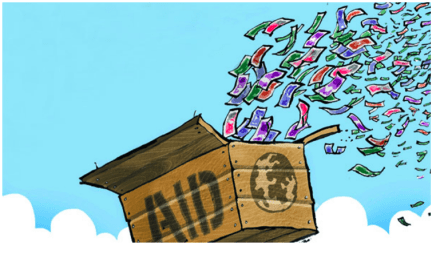In defence of the foreign aid cut
It says something for the persuasive powers of former international development secretary, Andrew Mitchell, that he mustered enough potential votes to inflict defeat on Boris Johnson’s government, if only his amendment had been permitted and a vote had been held. Mitchell’s consolation prize, awarded by the Speaker in recognition of the strength of feeling in the Commons, is an emergency debate on what would have been the substance of his amendment: to reinstate foreign aid at 0.7 per cent of GDP from next year, rather than the reduction to 0.5 per cent that was set in the Budget. The rift this row has exposed among Conservative MPs could embarrass the Prime


